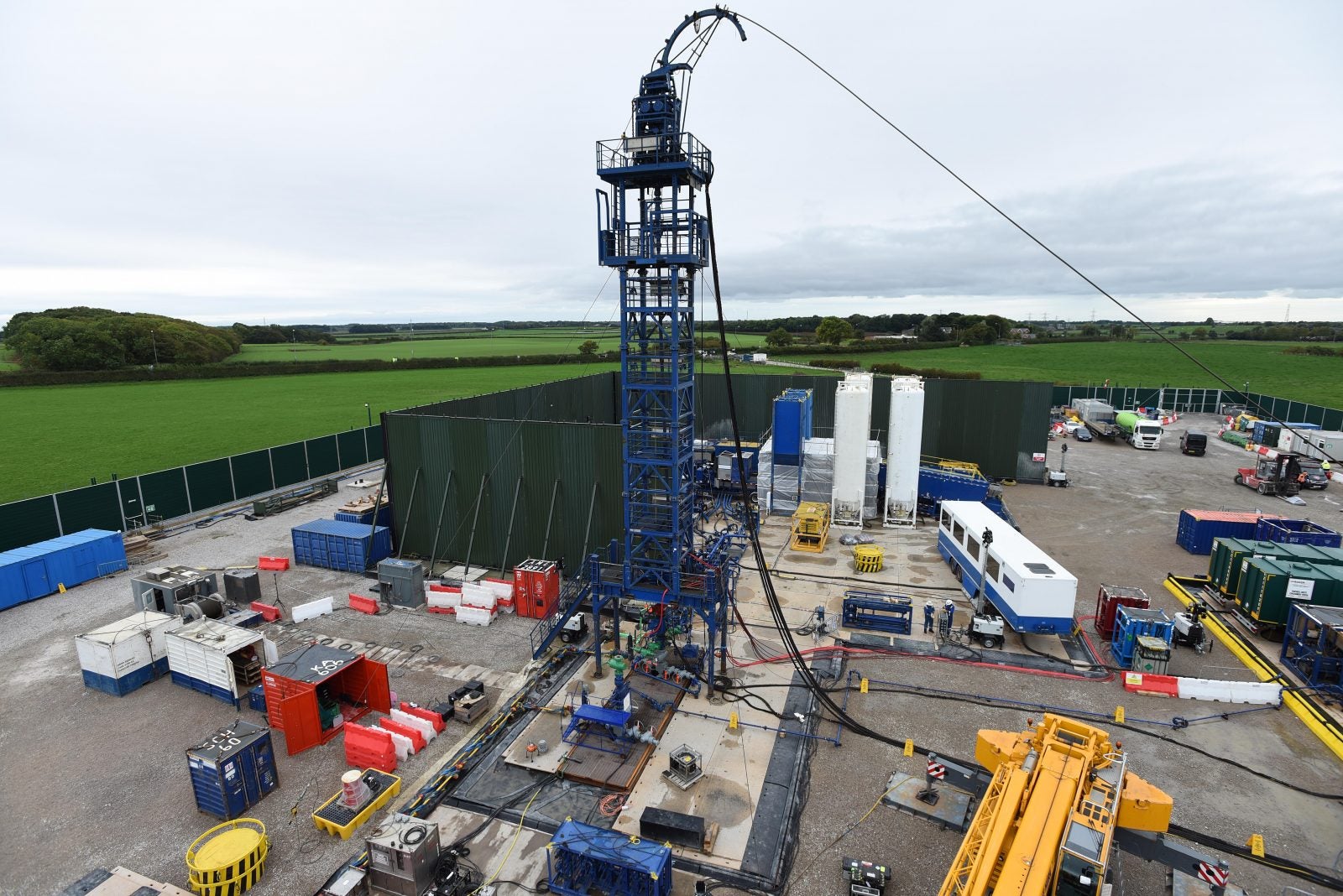Fracking company boss makes last gasp plea to government to lift moratorium on shale gas
Cuadrilla is due to plug and abandon its wells, but energy crisis and Ukraine invasion mean government is now having doubts about ruling out UK shale gas

Your support helps us to tell the story
From reproductive rights to climate change to Big Tech, The Independent is on the ground when the story is developing. Whether it's investigating the financials of Elon Musk's pro-Trump PAC or producing our latest documentary, 'The A Word', which shines a light on the American women fighting for reproductive rights, we know how important it is to parse out the facts from the messaging.
At such a critical moment in US history, we need reporters on the ground. Your donation allows us to keep sending journalists to speak to both sides of the story.
The Independent is trusted by Americans across the entire political spectrum. And unlike many other quality news outlets, we choose not to lock Americans out of our reporting and analysis with paywalls. We believe quality journalism should be available to everyone, paid for by those who can afford it.
Your support makes all the difference.The government’s focus on slashing dependence on foreign fossil fuel imports amid the energy crisis and the war in Ukraine is sending mixed messages to the power sector, with both clean energy firms and domestic fossil fuel companies aiming to capitalise on the uncertainty.
On Monday, following reports that fracking could be explored as part of plans to boost the UK’s energy security, the boss of drilling company Cuadrilla called on the government to lift the moratorium on shale gas extraction.
Despite major opposition to the practice on climate grounds, and warnings from experts that shale gas cannot make a material difference to supplies in the UK, Francis Egan has made an eleventh-hour request to the business department to allow fracking to go ahead.
The plea comes as the company nears a deadline to concrete its exploratory wells.
In a statement, he said: “If the words from Downing Street and the House of Commons are to have any practical meaning I urgently request the Business Department and the OGA (Oil and Gas Authority) to formally withdraw their instruction to plug the wells.
“They should also put sensible protections in place to ensure that companies like Cuadrilla and others aren’t forced to suffer the risk and financial cost of operating in a position where a government can keep changing its mind and require wells to be cemented whilst they are eminently useful.
“If we are serious about energy security, as a very basic, first step we must not concrete up these wells, and then we need urgently to lift the shale gas moratorium and use these and additional wells to produce domestic shale gas.”
The business secretary, Kwasi Kwarteng, has repeatedly signalled his opposition to fracking, and recently wrote on Twitter that introducing supplies of fracked shale gas would not be sufficient to have an impact on wholesale prices of gas.
He said: "Additional UK production won’t materially affect the wholesale market price.
"This includes fracking – UK producers won’t sell shale gas to UK consumers below the market price. They’re not charities."
However, a government spokesperson told The Independent: “In light of Russia’s unjustified invasion of Ukraine and rising global gas prices, it’s right we move away from dependence on Russian gas and increase our self-reliance in our energy security.
“We are considering all our options. We will set out an energy supply strategy which will supercharge our renewable energy and nuclear capacity as well as supporting our North Sea oil and gas industry.”
The International Energy Agency has said if the world is to avoid the worst impacts of the climate crisis, then no new fossil fuel projects should go ahead.
The government is also looking at expanding drilling in the North Sea.
The drive for new fossil fuels comes just four months after the UK hosted the UN’s Cop26 climate summit, designed to rally support for slashing greenhouse gas emissions, and just days after the UN’s Intergovernmental Panel on Climate Change warned that "billions" are now highly vulnerable to environmental collapse, while the window for taking the necessary action was "rapidly closing".
The UK currently gets around 45 per cent of its gas from the North Sea, 36 per cent from Norway, Qatar provides 7.3 per cent, and the remaining 11.7 per cent comes from other sources including Russia, which contributes between 1 – 4 per cent of UK gas.
All of the gas used in the UK, including from domestic sources, is bought on the open market, but the wholesale price of gas has quadrupled in the UK and Europe.
The cheapest way to generate power in the UK is through renewables, and in particular solar and wind power, however, much industry along with domestic heating systems remain dependent on gas.
In order to cut the country’s remaining gas demands, experts are urging the government to prioritise insulating homes and putting measures in place to enhance energy efficiency.
Analysis by the Energy and Climate Intelligence Unit (ECIU) found the UK could wipe out the requirement for Russian gas in just five years – as early as 2027 – through better insulation and installation of electric heat pumps, which they said would help protect 6.5 million homes from volatile gas prices.
Join our commenting forum
Join thought-provoking conversations, follow other Independent readers and see their replies
Comments